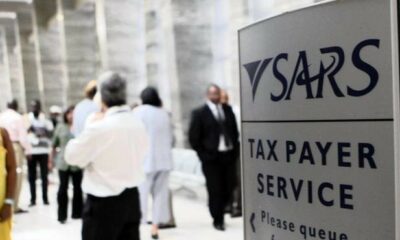Best of Johannesburg
The Future of Work in Joburg 2025: Remote, Hybrid, and the Office Debate

In the City of Gold, work is changing
It’s early 2025, and Johannesburg’s working world is stuck in a tug-of-war. On one side is the allure of hybrid flexibility. On the other hand, there is a push for a full return to the old ways. But closer to home, the story is more nuanced. The future of work here isn’t about choosing between remote or office; it’s about writing a new script altogether.
Why hybrid rose, and why it’s holding its ground
Across South Africa, hybrid work is no longer an experiment. Many firms now expect employees to mix days at home with days in a shared office. For those making that shift, it’s been a lifeline: shorter commutes, deeper trust, and the ability to scale back on huge footprints in costly office towers. Local developers note that major office parks in Sandton and Rosebank are reconfiguring themselves to be hybrid-friendly.
At the same time, the pushback is real. Some large organisations have tightened mandates, nudging, or forcing employees back into full-time office presence. But only a few companies have fully reverted; most now adopt a hybrid default, tweaking as they go. A recent survey of multinational firms showed about 85 percent still allow some hybrid working, and many expect about three in-office days per week.
What makes Joburg unique
You can’t talk about work in Joburg without mentioning infrastructure headaches. Load-shedding, erratic internet, and uneven access to backup power; these are daily realities. Some firms now issue routers or home-office allowances to ease the burden.
Then there’s the unemployment crisis. With over 40 percent of working-age South Africans unemployed, flexibility is a survival tool. Young talent in particular is drawn to jobs that allow location choice, even jobs that pay less, over traditional roles locked to a fixed address. Remote and hybrid roles have unlocked global opportunities for many South Africans.
And as people decamp from the CBD, the suburbs and outer nodes are seeing growth. Satellite offices are popping up closer to where people live, helping reduce traffic strain and shifting the real estate game. Coworking spaces in residential zones are now as vital as downtown towers once were.
The hybrid tightrope
Hybrid work balances freedom and structure, but it’s tricky to master. From where I sit, I see three major tests:
1. Performance and trust
Managers used to visibility are wrestling with measuring outcomes over presence. Some default back to monitoring tools or daily check-ins. But companies that lean on strict oversight often clash with employees who expect autonomy.
2. Culture and belonging
Too many hybrid models falter because they forget the “in-person glue.” Team rituals, onboarding, and mentoring often suffer when people rarely cross paths face-to-face. Offices now are meant to be magnets, not cages: design matters more than square meters.
3. Equity of access
Not everyone has a home setup that’s safe, quiet, or connected. Employees in shared homes, or in areas with poor infrastructure, can easily be left behind. The firms that succeed are the ones that invest in bridging that gap.
What successful organisations are doing
Here’s what’s working in Joburg:
-
Smart offices as hubs: Offices are evolving. Think modular meeting rooms, wellness zones, hybrid meeting tech and spaces that feel worth the trip.
-
Dynamic location policies: Some businesses pick “anchor days” for face-to-face check-ins; others let teams decide their in-office days.
-
Home-office kits: Basic desks, backup power, web gear and monthly stipends help level the field.
-
Wellbeing as strategy: Companies are formally setting boundaries (for example, “no meetings Fridays”) to curb burnout.
-
Upskilling for hybrid fluency: Digital literacy, emotional intelligence, self-management, and soft skills are becoming baseline.
What to look out for in the months ahead
-
Expect more hybrid policy shifts: few firms will lock in fixed models now.
-
Office space in city centres may shrink further; suburban offices and flexible leases may gain more ground.
-
Infrastructure remains the wildcard: power outages, connectivity issues, and local municipal crises will continue shaping what’s possible.
-
The stigma around “not being in office” will fade; presence won’t always equal productivity.
Closing thoughts
In Joburg, “hybrid or bust” isn’t the reality. Instead, we’re learning that work is local, shaped by power, roads, talent, and the rhythm of the city. The organisations that succeed will be those that treat flexibility as a deliberate design, not a temporary concession.
This isn’t just about work. It’s about reimagining the city’s pulse. And for those of us travelling this ride, the question isn’t really whether remote survives; it’s how we do it right.
Also read: How Burnout Became the Silent Epidemic Among South African Workers in 2025
Follow Joburg ETC on Facebook, Twitter, TikT
For more News in Johannesburg, visit joburgetc.com
Featured Image: USC Online – University of Southern California



























